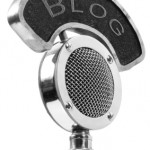 This week my guest is Gordon Strong, three time Ninkasi award winner (best in the US) and a Grandmaster Beer Judge. We discuss advanced homebrewing techniques – specifically for all grain brewers who have the basics of beer brewing down but want to do more.
This week my guest is Gordon Strong, three time Ninkasi award winner (best in the US) and a Grandmaster Beer Judge. We discuss advanced homebrewing techniques – specifically for all grain brewers who have the basics of beer brewing down but want to do more.
Download the MP3 File – Right Click and “Save As” to download this mp3 file
[audio:http://traffic.libsyn.com/beersmith/BSHB-39-Adv-Brewing-Strong.mp3]Topics in This Week’s Episode (51:41)
- Gordon Strong, the author of “Brewing Better Beer” a book for advanced home brewers, as well as a three time Ninkasi award winner, and President of the BJCP joins us this week to talk about advanced beer brewing,
- We start by discussing some of the things you need to consider once you have the basics of all grain brewing down and are designing your own recipes.
- Gordon shares thoughts on brewing water and how too many water additions can ruin your beer.
- We discuss the best use of dark grains – steeping them instead of mashing in most cases to reduce harshness in darker beers.
- Gordon shares some tips for increasing the maltiness of your grains.
- We talk about a few of his favorite hop techniques including first wort hops and late addition hops, and also why Gordon does not do much dry hopping.
- Gordon shares a few examples of how he goes about designing beer and why he makes certain choices with his beers.
- Gordon’s Recipes he mentioned can be found here: Gordon’s American Pale Ale and Gordon’s Brown Porter
Thanks to Gordon Strong for appearing on the show and also to you for listening!
Thoughts on the Podcast?
Leave me a comment below or visit our discussion forum to leave a comment in the podcast section there.
Subscribe to the Podcast
Great News! We’ve been featured in the New and Notable podcasts on iTunes.
If you are not using iTunes, you can subscribe using this feed:
- http://feeds.feedburner.com/BeersmithcomHomeBrewingBlog
And finally, don’t forget to subscribe to the blog and my newsletter (use the links in the sidebar) – to get free weekly articles on home brewing.
Hey Brad,
Gordon discusses cold steeping roasted/dark grains and adding them late in the boil in his book. If I want to do this, how do I set that up in Beersmith?
I like Gordon’s suggestion to add the “steeping” grains at the end of the mash. Is there a way to show this in Brewsmith?
Unfortunately it is not a feature yet but I’ve already teed it up to be added.
Pingback: Brewing With Oats : Oatmeal Stout Case Study // Home Brew Manual
Brad,
Can BeerSmith handle no-sparge? Hopback? Nice chatting with you briefluy at NHC 2012
I find it interesting that Gordon does not dry-hop. My personal experience through my own experiments is that there is no kettle addition (pre or post boil) that can come close to imparting the aromatics obtained through dry hopping post fermentation. I would be interested in tasting some of his beers, since he’s clearly a decorated brewer. There is not aromatically hop-forward beer I’ve had commercially available on the market that is not dry-hopped, either.
The reason Gordon gave was that he doesn’t like the grassy quality that comes from hops that are not “cooked.” We’ll leave the discussion over whether or not a grassy characteristic is evident in properly dry-hopped beers for another day, but the logic doesn’t really seem to work considering he recommends replacing dry hopping with whirlpool additions. Whirlpool additions are additions to avoid “cooking” the hops or isomerizing the volatile flavor/aroma oils.
If you use any of the “BIAB” mash profiles it will force the program into a full boil mash which is what you need for no-sparge. I currently don’t have a hop-back option, though you could add it as aroma hops since it occurs in the same step in the process.
Hey brad, love this episode. I’ve come back to it a couple times.
I’m planning using Gordon’s technique for water treatment, but just wanted to clarify the ro water. The RO water discussed is labeled as “drinking” or “purified” water in stores, correct? Purified by reverse osmosis with no minerals added back in is what I’m seeing on labels.
Yes – reverse osmosis gives you very neutral water which means you need to add some additions to it to achieve the profile you want.
Pingback: Resumen 2012 | Tijuana Homebrew Club
I just wanted to note that in the linked Brown Porter recipe, your notes indicate the water was treated with phosphoric acid to a pH of 5.2. During the interview with Gordon, it’s stated he treats his entire brewing water to a pH of 5.5. Treating RO water to a pH of 5.2 and then adding CaCl2 to the grist may result in a lower than desired mash pH.
Also, the ingredients list does not include the CaCl2 boil addition.
Hi Brad,
I enjoyed this episode. I have a couple of questions about Gordon’s Pale Ale recipe.
Gordon said that he uses a mixture of Galaxy and Cascade hops for this recipe. His recipe that you post a link to only has Galaxy hops. Where’s the Cascade?
Also, he said that he used light Munich Malt. Your version of the recipe has Munich Malt with an SRM of 9. I believe that would be considered dark munich malt wouldn’t it? Since he mentioned that he likes his pale ales to be very light I suspect that he intended to have a lighter Munich Malt.
Can you comment on these items?
Thanks!